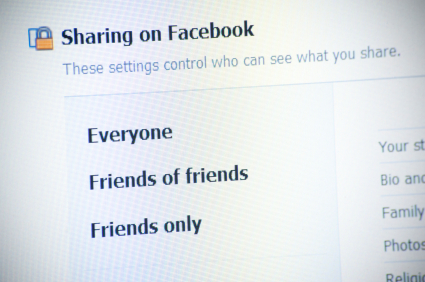Is "Think Before You Post" Dangerous Advice?
In my book, The Media Training Bible, I offered what I thought was an incontrovertible recommendation regarding social media: “The best advice is also the simplest: before hitting ‘send’ on any post, pause and review it one final time.”
But I recently read something that made me wonder whether that advice is sufficient.
That’s because some sites—including Facebook—reportedly have the capacity to know what you typed and deleted, even though you didn’t post your comment.
According to an article in Slate by Jennifer Golbeck, Facebook has the ability to track the comments that you started typing but then decided not to post.
“The code in your browser that powers Facebook still knows what you typed—even if you decide not to publish it. It turns out that the things you explicitly choose not to share aren’t entirely private.”
Facebook says it’s not reading the text of your abandoned messages. For one study the company authorized, researchers tracked “whether you self-censored, not what you typed.” But according to Golbeck, Facebook has the ability to do both:
“The same code Facebook uses to check for self-censorship can tell the company what you typed, so the technology exists to collect that data it wants right now.”
As Golbeck explains, abandoned posts cost Facebook money (“Facebook shows you ads based on what you post”), so they want to understand what types of posts people stop writing in order to decrease such self-censorship.
To be clear, there’s absolutely no evidence that Facebook is actually reading, monitoring, saving, or analyzing your abandoned comments. But that’s not the point of this post.
Rather, the point is this: I suspect that many of you, like me, thought the information you typed but deleted before posting was knowable only to you. Golbeck’s story suggests that may not be the case. And she writes that Facebook’s privacy policy suggests they’d have the right to access that information.
This risk is admittedly a low one, perhaps bordering on irrational paranoia. But in a world full of metadata, hackers and leakers, I’d rather play it safe.
I should point out that others have taken Golbeck to task for her article. Here’s a piece that calls Golbeck’s article “completely, categorically, profoundly, utterly wrong.” However, the author of this rebuttal piece focuses primarily on the study itself and doesn’t challenge the central premise of Golbeck’s article, that Facebook has the capacity to collect this type of data.
The advice I offered in my book—pause and review your posts before hitting ‘send’—still stands. But I’d add one important step first: Don’t type your draft posts about controversial or delicate topics directly into social media sites or web-based email (Gmail uses the same technology, as do others that use your real-time typing to generate relevant ads, for example). Type your draft offline—in a Word document, perhaps—or if you’re wary of using any electronic devices at all, think it through or scribble it on paper first.
And then destroy the paper.
A grateful tip ‘o the hat to @Marvelle, who sent me the link to this story.
What do you think? Please leave your thoughts in the comments section below.




